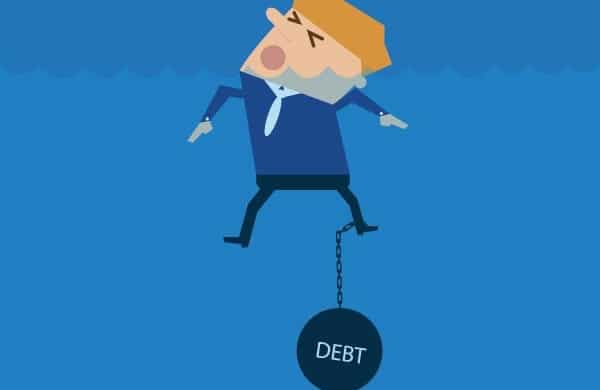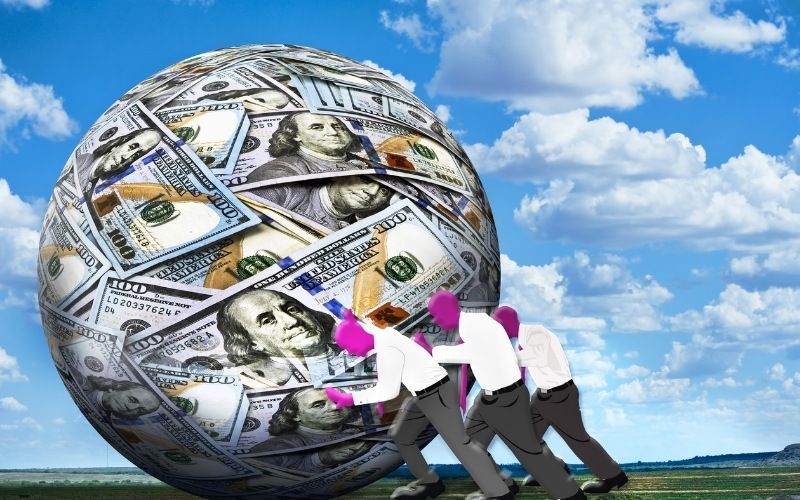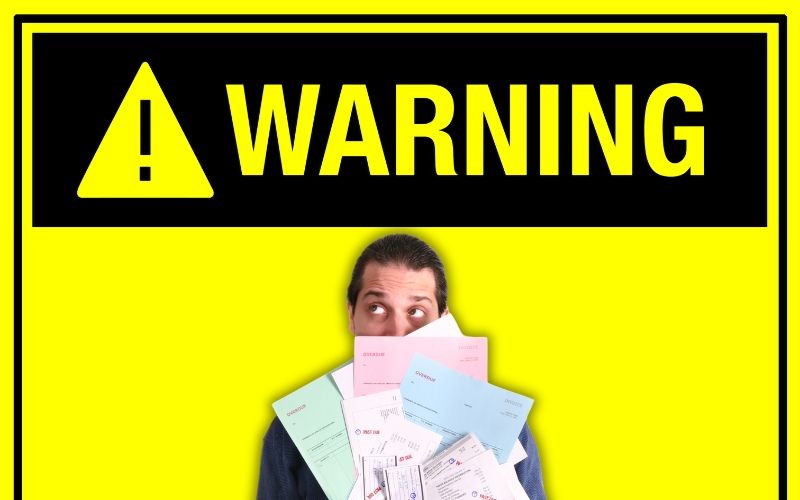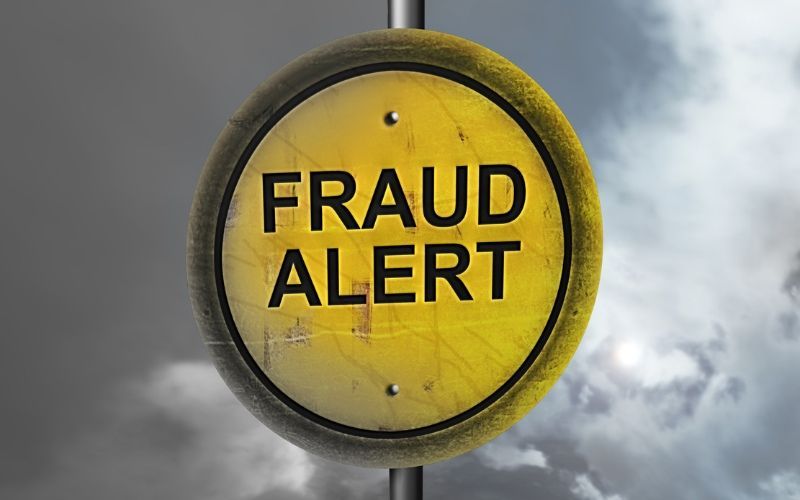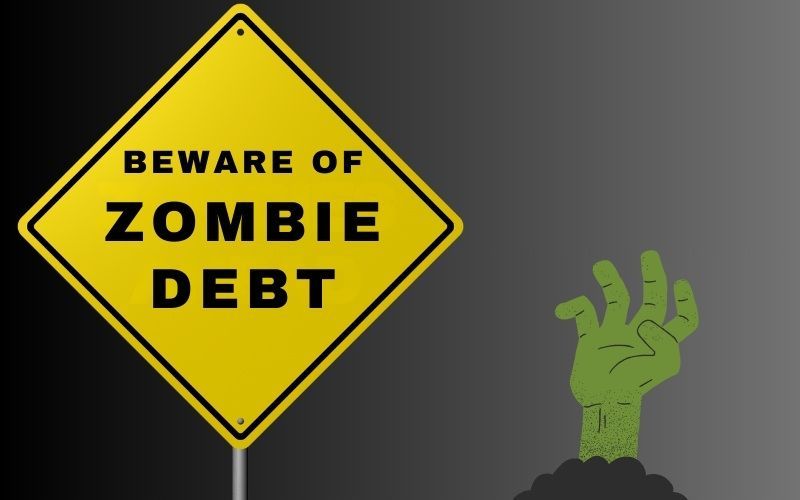How Do I Get Out Of Debt Quickly Without Hurting My Credit?
Last Updated: March 22, 2024
Fastest Way to Become Debt-Free Without Credit Score Damage
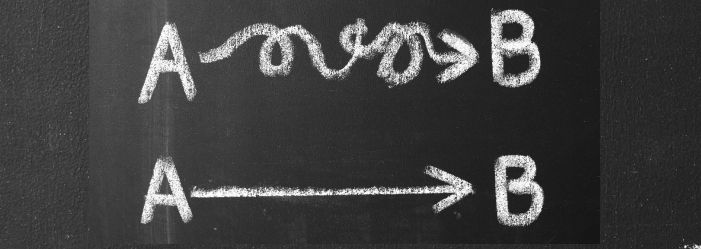
Finding yourself in debt can be stressful, especially when you're concerned about the impact on your credit score. Fortunately, there are several strategies to consolidate and eliminate debt without causing harm to your credit.
In this guide, we'll explore various methods to manage and reduce your debt efficiently. From taking advantage of balance transfer offers to considering a personal loan, we'll dive into the best ways to consolidate debt based on your unique financial situation, ensuring your credit remains intact.
With the right approach, you can navigate your way out of debt and towards financial freedom.
Want to skip the article and speak directly to a debt specialist? Click here for a free consultation.
Top Benefits of Debt Settlement
While debt settlement may take 2-4 years to complete, it provides several advantages over ongoing minimum payments or alternatives.
Here are Some Benefits:
- Reduced Interest Rates - Once enrolled in a debt settlement program, interest rates on accounts can be reduced to 0-9% vs high credit card rates of 15-30%. This means more money goes towards paying down the principal.
- Settled Debt - Professional negotiators work with creditors to settle accounts for on average 40-60% of the outstanding balance. This reduced payoff amount lets you become debt-free much faster.
- Flexible Payment Plans - Based on your financial situation, debt settlement programs create customized payment plans you can afford each month. There is flexibility as circumstances change, even if you have a low income.
The reality is that it takes a long time to accumulate the debt in most cases, and it generally takes even longer to dig yourself out, due to the interest and fees charged by credit issuers.
One of the fastest ways to get yourself out of debt is to enroll in a debt settlement program, which is an alternative to bankruptcy. For those struggling with over $10,000 in unsecured debt, it can be a turning point in their financial lives and put them on a path to a debt-free future.
Credit Score Impacts
Unfortunately, many individuals and families don’t get the financial relief they need because they are paralyzed by the fear of their credit score dropping. This relates back to the original question posed in this post, which is that most consumers are looking for a solution that is “quick” but that will also not “hurt their credit”.
For the record, your credit score is important. Individuals with a FICO score of 720 or higher generally can borrow money at the lowest rates available, meaning car loans, mortgages, and credit cards will carry lower rates of interest.
However, enrollment in a debt settlement program may cause your credit score to drop initially by 50-100 points. This is due to pausing payments to creditors and accounts becoming delinquent. Over the course of the 2-4 year program, your score typically rebounds by about 50 points. After completing the program and becoming debt-free, you can focus on rebuilding your credit history through careful borrowing and on-time payments.
If you own a television or surf the web, you have been exposed to countless advertisements and financial gurus all espousing the virtues of a high credit score. The fact is, credit is important.
However, I would argue that for most individuals struggling with excessive unsecured debt, their low credit score is not what keeps them up at night. Nor is their credit score what prompted them to call us for help.
No, just about everyone who picks up the phone to call
Pacific Debt for the first time is concerned with their actual debt. Clients often have a combination of credit cards, high-interest personal loans, and payday loans. We often hear stories of clients borrowing from one creditor to pay another. For some, this is a cycle that they have been trapped in for years, possibly decades.
Many of the people we consult with are excellent candidates for debt settlement; however, many still opt to not get the help – even when the problem involves over $40,000 in credit card debt. The primary reason cited for not proceeding is the “effect on credit”.
Debt Settlement Vs. Alternatives
While debt settlement can be a smart choice for becoming debt-free, it is not the only option.
Here is a quick comparison of some alternatives:
- Debt Consolidation Loans - These combine multiple debts into one new loan, often with a lower interest rate. However, they still leave you in debt with interest accruing. There is also a hard credit check which can ding your score.
- Credit Card Balance Transfers - This can provide lower interest savings in the short-term but does not actually reduce your debt. There are also transfer fees to consider.
- Bankruptcy - This legal process can eliminate many types of debt, however, it severely damages your credit for 7-10 years. Your assets may also be liquidated.
- Debt Management Plans - Non-profit credit counseling agencies can negotiate lower interest rates on your debts and consolidate payments. However, these plans typically take 5+ years to complete.
As you can see, each option has pros and cons to weigh based on your specific financial situation.
Debt vs. Credit
For those of you who are stuck on the fence with your decision, there are some points to consider when weighing your DEBT versus YOUR CREDIT.
- How much is your “good credit” costing you? The reality is, that your good credit is probably what enabled you to accumulate the debt in the first place. Now, consider how much interest you are paying each month. Are you making any progress on the debt? If you are paying $400 per month in interest and seeing little to no progress, that translates to $4800 per year, $19,200 over four years, and you will STILL likely be in debt! If the above situation resembles your own, it’s clear to see that maintaining your “good” credit is a cost that you simply cannot afford. Alternatively, if you choose to stop throwing away your money, you could be debt-free in as little as 3-4 years. Upon completing Pacific Debt’s program, that $400 per month could then be used to fund a retirement account, college savings, or down payment on a new home or car.
- Have you had any recent late payments? Are you close to being maxed out on your cards? Do you have collection accounts? If you have answered “yes” to any of these, your credit score probably isn’t as good as you think it is. Pacific Debt has a relationship with Experian and can actually run your credit and pull your score for free to let you know where you stand. Once your debt is resolved, you can then begin focusing on improving your credit score by borrowing and using credit wisely.
- If you are struggling with debt, the last thing you probably need is MORE debt! The primary reason people maintain good credit is so that they can borrow money at favorable interest rates. While enrolled in a debt settlement program, your score will be negatively affected and you should avoid borrowing more money. Like all things, time heals all wounds and your score will improve through proper credit management. With that said, one of the many benefits of debt settlement is that our clients learn to live without relying on credit. Upon completing their programs, our clients have spent two to four years budgeting and managing their finances without depending on credit cards to finance their monthly expenses. As a result, our clients have learned new financial behaviors to avoid falling into the debt trap in the future.
What to Expect After Debt Settlement
Completing a debt settlement program is an amazing accomplishment, but your financial journey is not necessarily over to continue developing healthy money habits after becoming debt-free.
Here are some things you can focus on:
- Start an emergency fund with 3-6 months of living expenses to avoid relying on debt when unexpected costs come up.
- Begin contributing to a retirement account like an IRA or 401k, even if it's a small amount each month. Time is your greatest asset.
- Only take out loans sparingly and ensure you can pay off the balance quickly. Avoid accumulating new debt.
- Check your credit reports regularly and dispute any errors you find to help rebuild your score.
- Create a realistic budget that aligns with your financial goals and allows you to live within your means.
The future looks bright when you complete a debt settlement program! With some diligence, you can stay debt-free and work toward achieving your biggest financial dreams.
Questions to Ask Debt Settlement Companies
If you are considering debt settlement, make sure to do your research before choosing a company.
Here are some key questions to ask:
- What fees do you charge and when are they collected? Look for fair, flat-rate fees.
- What is your success rate for settling accounts? An 80%+ settlement rate is ideal.
- How long have you been in business and are you accredited with the BBB? Look for 5+ years experience and an A rating.
- Can you provide references from real clients I can speak with? Talking to past customers provides great insights.
- How responsive is your customer service? You need a company that is readily available to answer questions.
- Do you provide financial education resources and budgeting help? The right company will offer you continued support.
Thoroughly vetting potential debt settlement partners helps ensure you choose the best company for your needs.
Choosing the Right Debt Settlement Company

Now that you know what questions to ask potential debt settlement partners keep in mind when selecting the right company for your needs.
Here are a few factors:
- Fees - Opt for a company that charges fair, flat-rate fees spread out over the length of the program. Avoid any upfront fees.
- Experience - More experienced companies will have better relationships with creditors and proven negotiation strategies. Look for 5+ years in business.
- Reputation - Check third-party review sites like the BBB for ratings and any complaints. Only choose an accredited company in good standing.
- Results - Ask for settlement rate data and talk to past clients to verify the company can deliver on promises. Success depends on their expertise.
- Customer Service - You need a responsive team available to promptly answer any questions and keep you informed. Poor communication can negatively impact your experience.
- Education & Resources - Select a company that provides resources to help improve your financial literacy and budgeting habits for long-term benefits.
Doing your homework helps avoid debt settlement scams and partners with predatory practices. Instead, it allows you to find a reputable company equipped to help you successfully become debt-free.
FAQs
-
How much debt do I need to qualify for debt settlement?
Most debt settlement companies require you to have at least $10,000 in unsecured debt like credit cards, medical bills, or personal loans. The more debt you have, the more potential savings from settling your accounts.
-
How long does debt settlement take?
On average, debt settlement programs take between 2-4 years to fully complete. The timeline depends on your specific financial situation and how quickly you can make the monthly payments.
-
Will debt settlement hurt my credit score?
Yes, debt settlement will likely lower your credit score in the short term. Missed or reduced payments to creditors can cause your score to drop 50-100 points initially. Over the course of the program, your score typically rebounds about 50 points.
-
Are debt settlement payments affordable?
Debt settlement companies will work with you to create an affordable monthly payment plan based on your budget. Payments often start low, around 1% of your total debt, and gradually increase over the course of the program.
-
What are the costs for debt settlement services?
Fees for debt settlement services range from 15-25% of your total enrolled debt. The fees are spread out over the course of the program. Legitimate companies do not charge any upfront fees.
-
Can debt settlement stop collection calls?
Yes, one of the top benefits of debt settlement is that the frequent collection calls from creditors will stop once you enroll in a program. The debt settlement company handles communications.
-
How successful is debt settlement at reducing what I owe?
On average, debt settlement companies are able to settle debts for 40-60% less than the original amount owed. The success rate for negotiations depends on the individual creditor.
Conclusion
Becoming debt-free can seem like a long and difficult journey, and many people fail to get out of debt due to a lack of proper guidance. However, enrolling in a professional debt settlement program can help you reach your goals much faster than trying DIY methods.
While there are various options to consider, debt settlement provides key benefits like reduced interest rates, flexible payment plans, and settled accounts for a fraction of what you owe.
While your credit score may dip initially during enrollment, in the long run, you can rebuild and improve your credit after completing the program and focusing on healthy money management tactics.
Thoroughly researching potential debt settlement partners ensures you choose a reputable company that can negotiate with your creditors on your behalf and provide educational resources.
As with all decisions concerning your finances, it’s important to weigh all of your options. One of our professional staff members would be happy to complete a thorough budget analysis with you and review your debt situation.
Based on this information, we are happy to review your options and help you decide if
debt settlement is right for you. Please call us directly at 1-877-722-3328 for a free, no-obligation consultation.
Are you ready for debt relief help now?
Get Free Consultation- Accredited by Better Business Bureau with BBB A+ rating(4.93 rating and 1542 reviews)
- US News and World Reports and Bankrate ranked Pacific Debt as one of “The Best Debt Settlement Companies of 2020”
- 6.9 star rating by BestCompany.com (over 2379 client reviews)
- 4.8 star rating by TrustPilot based (over 1477 verified consumer reviews)
- ConsumerAffairs.com Accredited (over 543 verified reviews with an average rating of 5 stars)
- A Top 10 Rated Company by TopTenReviews.com , ConsumersAdvocate.com and Top10debtconsolidation.com
- 4.7 star rating by Google (220 client reviews)
- 100% rating by SuperMoney (9 client reviews)
Pacific Debt Relief
750 B Street Suite 1700
San Diego, CA 92101
Hours of Operation
Mon-Thurs: 6am - 7pm PST
Friday: 6am - 4:30pm PST
Saturday: 7:30am - 4:30pm PST
Clients
Phone: (877) 722-3328
Fax: (619) 238-6709
Email: cs@pacificdebt.com
Non-Clients
Phone: (833) 865-2028
Fax: (619) 238-6709
Email: inquiries@pacificdebt.com
"To eliminate debt one household at a time, while placing people first." - Pacific Debt
© 2024 Pacific Debt Inc. dba Pacific Debt Relief, all rights reserved.
California Privacy Policy |  Do Not Sell My Personal Information
Do Not Sell My Personal Information
GLBA Privacy Notice | CDRI Accredited Member
*We do not discriminate on the basis of race, color, religion, sex, marital status, national origin or ancestry.
*Please note that all calls with the company may be recorded or monitored for quality assurance and training purposes.
*Your visit to our website may be monitored and recorded from essential 3rd party scripts.
*Clients who make all their monthly program deposits pay approximately 50% of their enrolled balance before fees, or 65% to 85% including fees, over 24 to 48 months (some programs lengths can go higher). Not all clients are able to complete our program for various reasons, including their ability to save sufficient funds. Our estimates are based on prior results, which will vary depending on your specific circumstances. We do not guarantee that your debts will be resolved for a specific amount or percentage or within a specific period of time. We do not assume your debts, make monthly payments to creditors or provide tax, bankruptcy, accounting or legal advice or credit repair services. Pacific Debt is not a credit repair firm nor do we offer credit repair services. Our service is not available in all states and our fees may vary from state to state. Please contact a tax professional to discuss potential tax consequences of less than full balance debt resolution. Read and understand all program materials prior to enrollment. The use of debt settlement services will likely adversely affect your creditworthiness, may result in you being subject to collections or being sued by creditors or collectors and may increase the outstanding balances of your enrolled accounts due to the accrual of fees and interest. However, negotiated settlements we obtain on your behalf resolve the entire account, including all accrued fees and interest. C.P.D. Reg. No. T.S. 12-03825.
